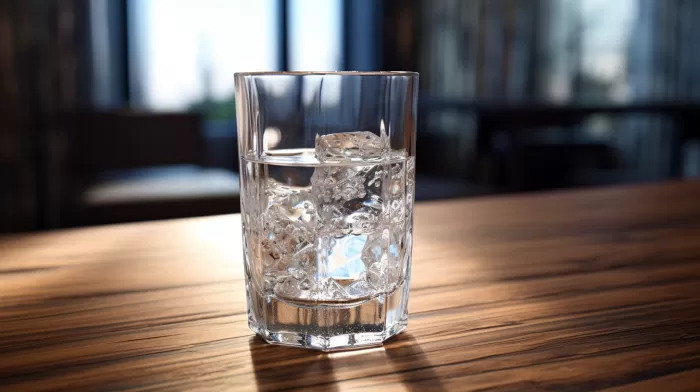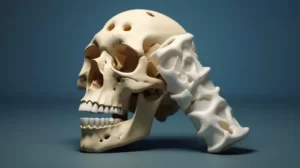You might assume that calcium is the essential mineral for maintaining strong bones, but a surprising discovery has been made by researchers. While investigating which minerals were essential for strengthening bones, they found that calcium wasn’t the answer. Instead, they discovered that the key mineral was magnesium.
People living in areas with higher magnesium levels in their drinking water were found to have stronger bones. This led researchers to consider adding magnesium to drinking water to reduce the number of hip fractures, a common and serious issue, particularly for seniors.
The Importance of Magnesium for Bone Health
Calcium often takes the spotlight when it comes to bone health, but magnesium is crucial for reinforcing our skeleton. In fact, more than half of our body’s magnesium is found in our bones. Magnesium aids in the absorption of calcium, working alongside it to keep our bones strong.
Not only does magnesium contribute to bone health, but it also plays a significant role in over 300 enzyme reactions in the body, many of which are fundamental to our overall health. Yet, many people aren’t getting enough magnesium in their diet. In fact, according to the National Institutes of Health, a significant portion of the U.S. population do not meet the recommended daily allowance for magnesium.
Hip Fractures: A Growing Problem
Hip fractures are a severe issue, particularly among seniors who are more susceptible to these injuries. More than 300,000 Americans are hospitalized each year due to hip fractures. A broken hip in your 60s or older can be life-threatening and require long-term care and rehabilitation.
Cecilie Dahl, a research fellow at the Norwegian Institute of Public Health, suggests adding dolomite to drinking water as a source of both magnesium and calcium to help lower the number of hip fractures. Dolomite, a type of limestone, contains both vital minerals, whereas lime, commonly added to water supplies, only provides calcium carbonate.
However, Dahl also notes that more research is needed to better understand the complex relationship between calcium, magnesium, drinking water, and hip fractures. Further studies are required to provide a clearer understanding of the biological mechanisms involved.
Foods Rich in Magnesium
While we wait for more research on adding magnesium to drinking water, we can still take steps to ensure we’re getting enough of this vital mineral through our diets. Some magnesium-rich foods include:
- Dark leafy greens: Spinach and Swiss chard are excellent sources of magnesium. One cup of cooked spinach provides 39% of the recommended daily value.
- Nuts and seeds: Snacking on almonds, cashews, or pumpkin seeds can give you a magnesium boost.
- Legumes: Beans, lentils, and chickpeas contain a good dose of magnesium, along with fiber and protein.
- Whole grains: Opt for whole grain bread, pasta, and brown rice to increase your intake of magnesium and other essential minerals.
- Fish: Salmon, mackerel, and halibut are great sources of magnesium and omega-3 fatty acids, which have numerous health benefits.
Magnesium Supplements
If you’re struggling to get enough magnesium through your diet alone, you may want to consider taking magnesium supplements. Before starting a new supplement, it’s essential to consult with your healthcare provider for personalized advice and recommendations.
Both oral and topical magnesium supplements are available. Oral supplements come in various forms such as capsules, tablets, and powders. Topical magnesium products include lotions, creams, and oil sprays to be absorbed through the skin.
Be mindful of the side effects associated with magnesium supplementation. Large doses can lead to diarrhea, nausea, and stomach cramps. Additionally, magnesium supplements may interact with certain medications, such as antibiotics, diuretics, and proton pump inhibitors.
Conclusion
It’s time for magnesium to share the spotlight with calcium when it comes to bone health. Through a magnesium-rich diet or supplementation, we can help strengthen our bones and potentially reduce the number of hip fractures, particularly in seniors. Keep in mind that more research is needed to understand precisely how magnesium from drinking water can help protect against hip fractures, but that shouldn’t stop us from recognizing the importance of this mineral to our overall health.



